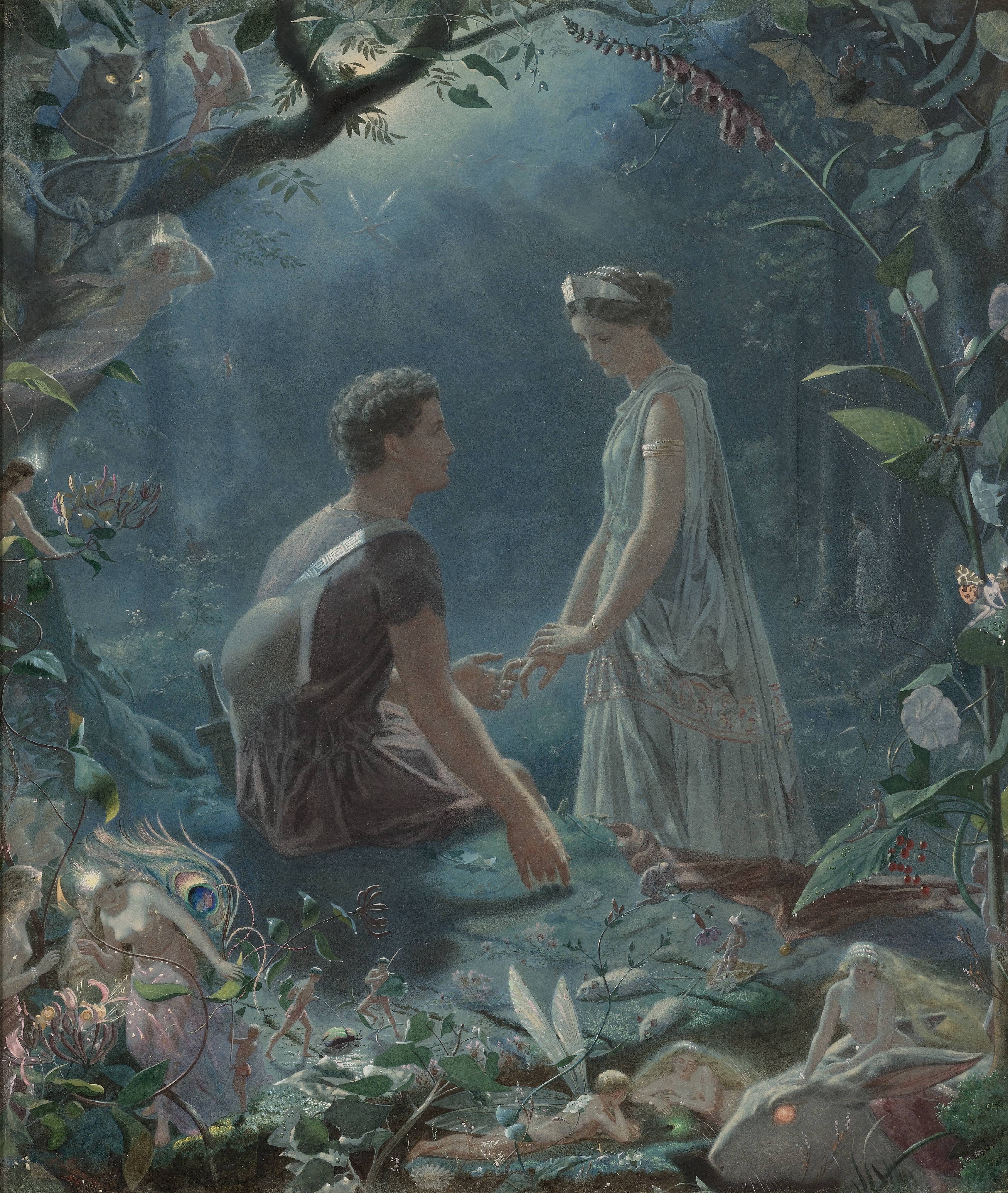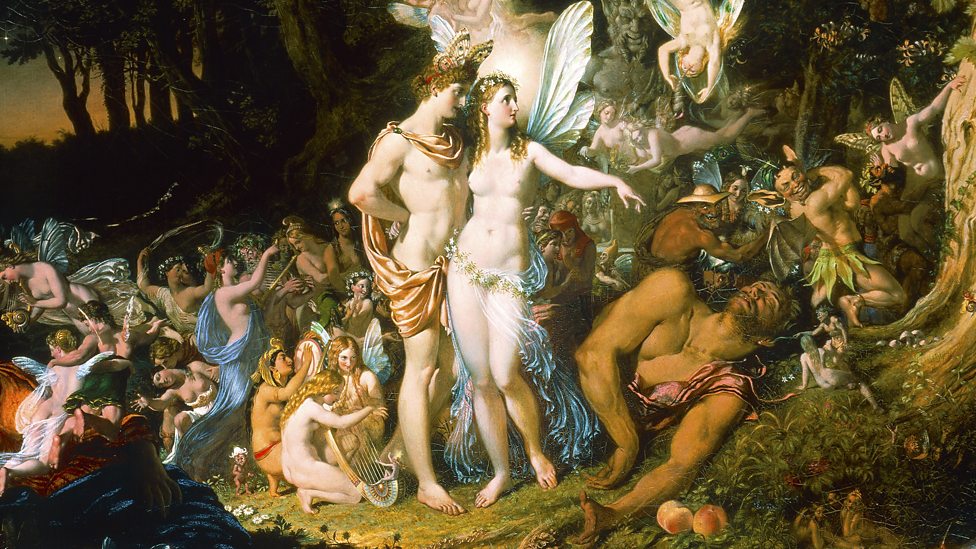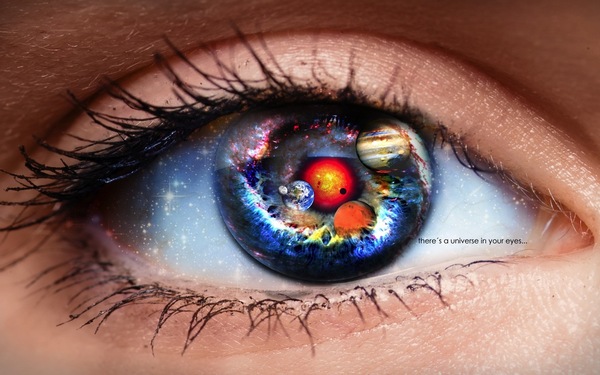A Midsummer Night's Dream
Girl meets boy. Girl falls in love with boy. Girl loses boy when mischievous fairy sprinkles love "juice" on boy's eyelids, making him fall for another girl. Girl wins boy back (with the help of a little fairy magic).
A Midsummer Night's Dream features young lovers who fall comically in and out of love in a ridiculously brief period of time (over the course of a single, enchanted midsummer night).

A Midsummer Night's Dream (c. 1595) was written around the same time Shakespeare whipped up his famous play about two "star-cross'd" lovers, Romeo and Juliet. In Dream, a group of craftsmen (the "Mechanicals") bumble their way through a ridiculous performance of Pyramus and Thisbe. The Mechanicals' play is widely considered to be Shakespeare's light-hearted and silly mock-up of Romeo and Juliet.
Over the years, there's been a lot of speculation about the occasion for which Shakespeare might have written the play. Did he write Dream to be performed at a nobleman's big, fancy wedding? Some scholars think so. This is a nice idea and it makes sense because plays were often commissioned for these kinds of fancy shindigs. (In the play itself, a group of amateur actors puts together a performance to celebrate the marriage of the Duke Theseus and Hippolyta.) It's too bad there's no real evidence to support the idea. Still, it's fun to imagine that Shakespeare created the piece to help a couple of happy newlyweds "dream away the time" before their much-anticipated wedding night.

The Poet's Eye
- William Shakespeare

IF - Bread
Bread – If Lyrics
- William Shakespeare
“The poet's eye, in a fine frenzy rolling, doth glance from heaven to Earth, from Earth to heaven; and as imagination bodies forth the forms of things unknown, the poet's pen turns them to shape, and gives to airy nothing a local habitation and a name; such tricks hath strong imagination.”

IF - Bread
Bread – If Lyrics
If a picture paints a thousand words,
Then why can't I paint you?
The words will never show the you I've come to know.
If a face could launch a thousand ships,
Then where am I to go?
There's no one home but you,
You're all that's left me to.
And when my love for life is running dry,
You come and pour yourself on me.
If a man could be two places at one time,
I'd be with you.
Tomorrow and today, beside you all the way.
If the world should stop revolving spinning slowly down to die,
I'd spend the end with you.
And when the world was through,
Then one by one the stars would all go out,
Then you and I would simply fly away
The meaning and origin of the expression: The face that launched a thousand ships
Meaning
>> A reference to the mythological figure Helen of Troy (or some would say, to Aphrodite). Her abduction by Paris was said to be the reason for a fleet of a thousand ships to be launched into battle, initiating the Trojan Wars.
Origin
Origin
>> Christopher Marlowe, in Doctor Faustus (variously dated between 1590 and 1604), referring to Helen of Troy, or as Marlowe had it 'Helen of Greece':
Was this the face that launch'd a thousand ships
And burnt the topless towers of Ilium?
Sweet Helen, make me immortal with a kiss.
No comments:
Post a Comment